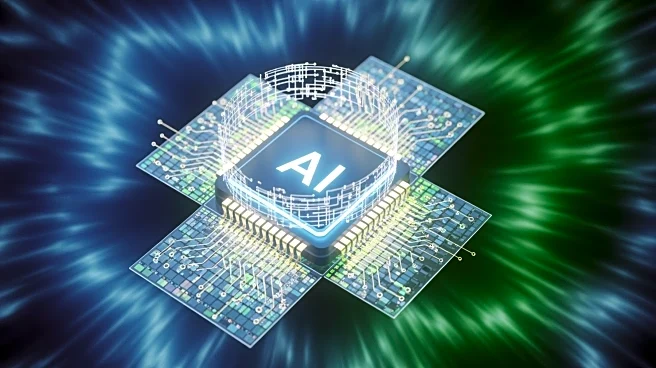What's Happening?
The landscape of work and business is rapidly evolving, with significant trends emerging in artificial intelligence, semiconductor supply, and climate change. A new wave of small, low-cost AI models is making
it feasible for businesses to develop chatbots and other AI tools on consumer-grade hardware. This shift is democratizing AI access, allowing smaller organizations to experiment and innovate without the high costs associated with large AI systems. Concurrently, carmakers are securing semiconductor supplies amid escalating U.S.-China trade tensions, highlighting vulnerabilities in global supply chains. Additionally, scientists have identified that warm-water coral reefs have crossed a climate tipping point, signaling broader environmental risks.
Why It's Important?
These developments have profound implications for U.S. industries and business leaders. The accessibility of AI technology empowers smaller companies to compete and innovate, potentially reshaping market dynamics. The semiconductor supply chain issues underscore the need for strategic planning and risk management in manufacturing and technology sectors. The climate tipping point raises urgent concerns for businesses regarding sustainability and resilience, as environmental changes could disrupt operations and supply chains. Companies may need to invest in sustainability roles and adapt to regulatory pressures to mitigate these risks.
What's Next?
Business leaders are likely to focus on integrating affordable AI solutions to enhance productivity and innovation. In response to semiconductor supply challenges, companies may pursue domestic partnerships and diversify their supply chains to reduce dependency on foreign sources. The climate findings could accelerate efforts to incorporate sustainability into business strategies, with increased emphasis on protecting assets and ensuring operational continuity in the face of environmental changes.











